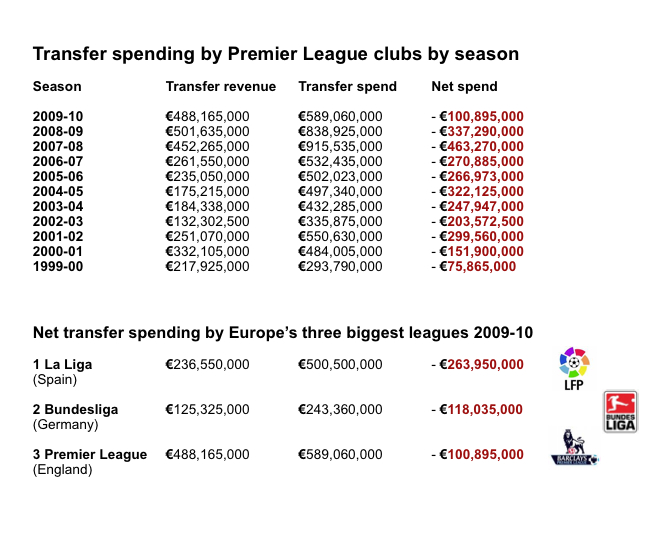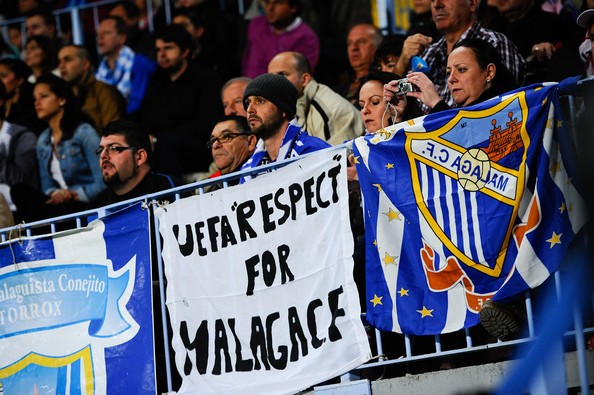- S.D. Eibar ready for maiden La Liga outing
- SD Eibar stengthen ahead of debut La Liga season
- Can ‘Super Mario’ live up to expectations in Madrid?
- MAN IN THE GROUND – Brentford 0 – 4 Osasuna
- Historic Basque derby welcomes S.D. Eibar to La Liga
- Munich to Madrid, via Brazil – Tony Kroos
- Rakitic in Spanish Switch
- Can Spain find redemption in Rio?
- Viva Espana! A season of redemption for Spanish football
- From the old to the new: who can fill the void in years to come for La Roja?
FINANCIAL FAIR PLAY? – Real Madrid, the Glazers and Plc’s
- Updated: 27 December, 2011

Unthinkable as it sounds, the possibility of Real Madrid becoming a plc has been discussed in the past.
To be fair, it has never been taken too serious, but it has been mentioned sporadically over the past ten years.
Obviously the comparison between the Glazers (who own Manchester United) and Florentino Perez is a very short run contest in my wholly honest opinion. It does not take a financial whizz kid to ascertain who’s strategy makes more sense – not least because the Glazers borrowed 80 pct of funds against the football club.
Their idea was to service the ludicrous debt by structuring it annually with high interest whereas Perez just seems to be relying on shirt sales and marketing strategy to pay back his loans.
But would that solve anything? The evidence suggests not. In the early 1990s, a new law obliged every club to become a plc, with four exceptions – Real Madrid, Barcelona, Athletic Bilbao and Osasuna, who were given special exemptions for socio-cultural reasons.
Shares were issued and the slate wiped clean. It was supposed to be a panacea. The theory was simple: presidents would be more careful risking their own money. They were not. Often their fans would not let them…
Look back over the clubs who have competed in the Champions League recently and the situation is alarming: Valencia’s debt was more than €600m going into this year. Like Real Madrid (who sold the their training ground for €447m to the council in 2001, wiping out their €278m debt), a property deal was supposed to be their salvation. However, the market crashed at just the wrong time.
Now Valencia have two stadiums – one they cannot sell and another that work has only just resumed on after a lengthy delay due to lack of funds.
According to the third largest shareholder at Atlético Madrid, their debt is above €300m.
In the summer Villarreal failed to pay their players for the first time because the ceramics industry from which their owner, Fernando Roig, makes his money has been hit hard by the crisis. Deportivo La Coruña are more than €120m in debt.
Over the past few seasons, Celta Vigo and Real Sociedad have been relegated and, with no parachute payment to break the fall, went into administration.
Real Sociedad’s president at the time was a certain Astiazarán, now the league’s president. This culture needs to stop, it will strangle the longevity of La Liga’s ability to challenge and grow as a worldwide domestic competition
According to the latest Deloitte football finance report, La Liga’s revenues grew by eight per cent to €1.622m in 2009-10, the highest relative and absolute growth of any of the ‘big five’ leagues.
However, much of the growth was driven by Real Madrid and Barcelona whose collective revenues increased by €69m. Which clearly show’s the unjust imbalance of TV rights/revenue proportioning that go on within the La Liga dividends and the facts are that policies in Spanish football are often driven by the two powerhouses of Real Madrid and Barcelona.
According to reliable statistics Madrid have 13.2m fans while Barcelona have 10.4m. Valencia are third with 2.1m. Nearly two-thirds of all football fans in Spain support one of the big two. And supporters of other clubs almost invariably choose Madrid or Barcelona as a “second” team.
The dominance is felt most on TV – and that is the crux of the issue, the precarious foundation upon which Spanish football is built. Unlike elsewhere – and even Italy is going collective – Spanish clubs negotiate individual television deals.
“The lack of a centralised deal is the biggest problem we face,” Tebas says. The reason is clear. Madrid and Barcelona will earn approximately €120m in rights each year until 2013. Last season’s third-placed side, Sevilla earn around €20m; Valencia, currently third, make under €30m – less than Portsmouth.
Right throughout the league, the imbalance is extraordinary. Competing is impossible.
The problem is the league are powerless to impose a collective deal, although they continue trying. There is so many splits of opinions that it is impossible to get unanimous agreement on anything in the way of legislation. Your probably thinking ”isn’t that the main reason blocking SPL reform at the minute?” Yes.
There is a lot of talk about Premier League debts, but this is a much more serious overall situation, particularly when one considers the state of the Spanish economy. You have to ask yourself, where is La Liga’s long term strategy and policy heading?
The 2009/2010 figures compared to the Barclays Premier League show the revenue deficit compared to what the clubs spend is a terrifyingly obvious precedent that was set that summer, followed in the summer of 2010 with the likes of Hercules spending large amounts of money they simply did not have the capacity to re-emburse throughout the Season.






You must be logged in to post a comment Login